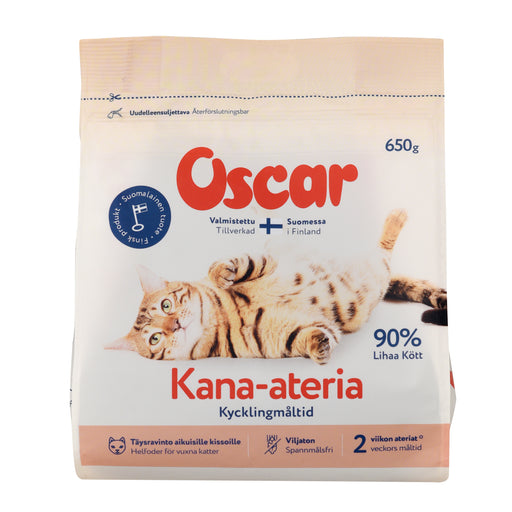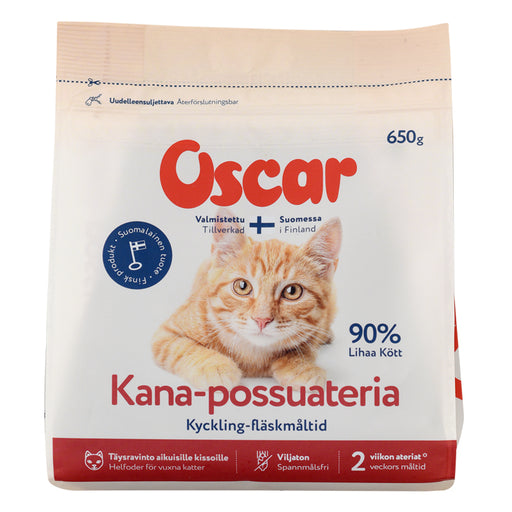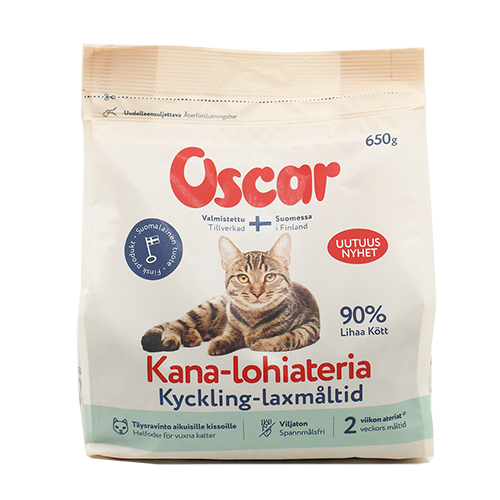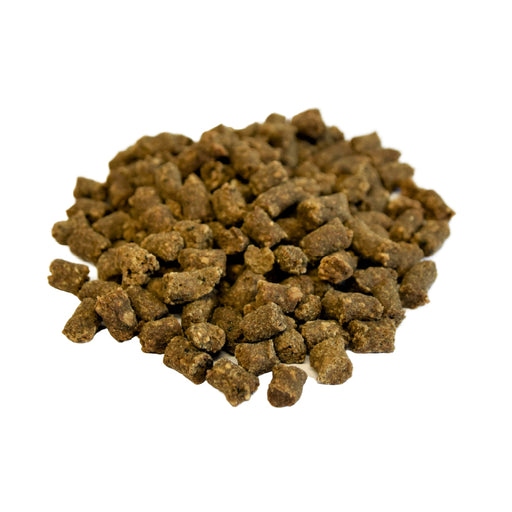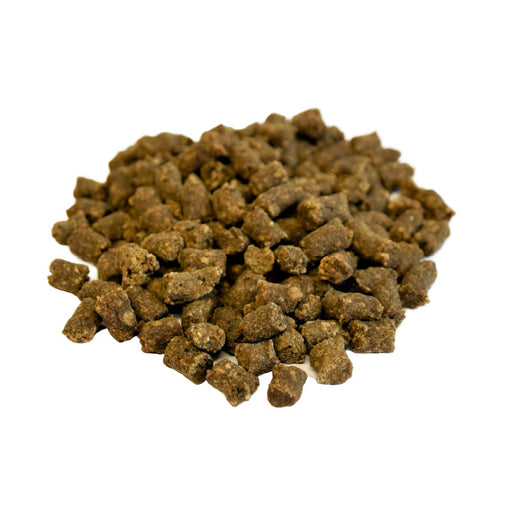Cats are natural carnivores and need more protein than dogs. Cats are better able to convert proteins into energy, requiring high-quality animal protein to maintain their muscles, the nitrogen balance of their organs, and to absorb essential amino acids, among other things. Cats also require proteins to maintain their fur. Taurine and arginine, amino acids included in animal proteins, are vital for cats. Their food must also contain enough fat, minerals, vitamins, and essential fatty acids such as omega-3 and -6. In nature, cats prefer to eat small rodents, including their bones and organs. Cats have no need of carbohydrates, but a small amount of fibre, preferably of animal origin, can improve their gastric function; excess plant fibre intake will disturb their gut microbiome, however.
The ideal meal routine for cats is multiple small meals over the course of the day, just like they would eat out in the wild, hunting multiple times a day. Fasting is absolutely unsuitable for cats. In addition to good quality cat food, cats must have unlimited access to clean fresh water. Because they get most of their fluids from their food in nature, cats have a tendency to not drink enough water.
How much food a cat needs depends on many factors, including age, activity levels, and life situation. Any changes to a cat’s diet must be introduced slowly to allow its body to adapt. Kittens should be introduced to a diverse diet already in the sensitive period by 12 to 14 weeks of age because older cats often initially refuse new foods. In particular, cats react to the mouthfeel of a new food with a different consistency, and their sense of smell is sensitive to anomalies. Cats also have a great innate need to satisfy their natural hunting instinct. Indoor cats have few organic opportunities for this behaviour, so their environment should be enriched by the owner. Feeding should emulate the cat’s natural behaviour as closely as possible through play – this will support the pet’s natural hunting behaviour and contribute to its health and happiness.
Teeth are a carnivore’s cutlery
The first hint that cats are meat eaters is their teeth: sharp, pointy teeth are made for cutting and tearing flesh. Because teeth are a cat’s primary tool, dental care should be a daily routine. On that note, tartar is a common problem for cats. Tartar forms when saliva causes the hardening of the plaque deposits on the teeth. How tartar forms is affected by the composition of the cat’s diet and saliva. Once formed, tartar and plaque can inflame the gums, spread into the tissue around the teeth, and eventually cause the teeth to loosen or fall out. A bacterial infection in the mouth may harm the general health of a cat. For good dental and general health, cats should be offered food that they need to chew properly: meat, bones, or sufficiently crunchy dry food. The pellets of Oscar dry food for cats are tough and large enough that the cat must chew its food properly. Oscar dry foods also include long fibres that rub against the teeth, which has been proven to prevent dental tartar.
High-quality food of animal origin helps cats maintain a healthy weight
Our modern pets live less active lives. Neutering and some common medications also increase cats’ appetite and tendency to gain weight. As cats get older, they require less energy, and any food containing plenty of carbohydrates will cause weight gain.
Feline obesity can have many consequences, including
- Higher risk of musculoskeletal disease
- Higher risk of heart and vascular disease, as well as diabetes
- Gastrointestinal (GI) tract issues
- A weaker immune response
- An increased occurrence of skin disease (fat cats are less effective groomers)
- A shorter lifespan
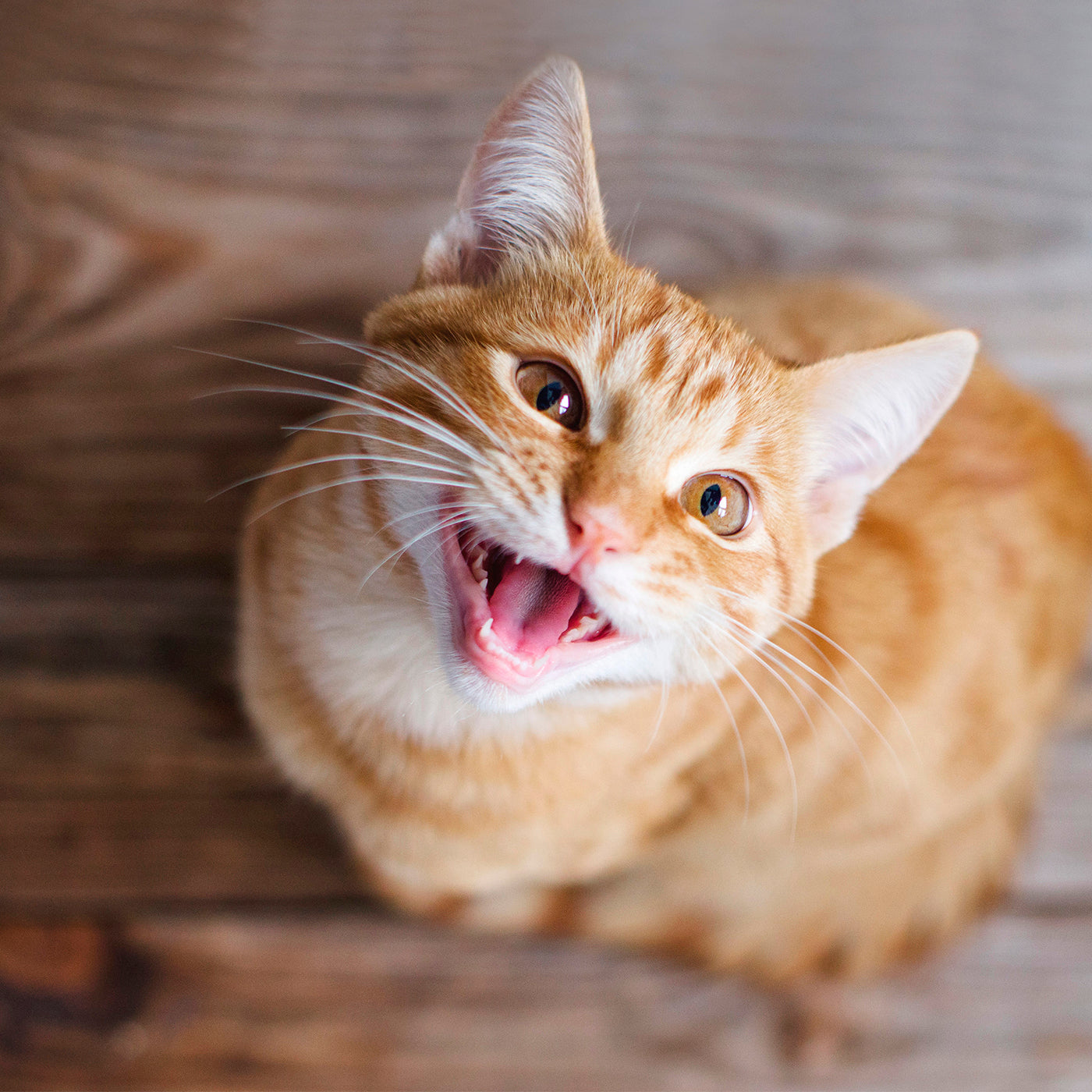
Healthy, meaty cat treats
Because cats should eat multiple times every day, snacks and treats are appropriate. Tasty high-quality treats will not cause weight gain because they are good, healthy nutrition that can replace a portion of the cat’s daily meals.
The delectable grain-free treats of the Oscar range include a minimum of 90 per cent Finnish meat – plenty of high-quality animal protein. The Oscar treats are perfect for felines, and the chicken, turkey, and salmon treats are especially good for the right mouthfeel for cats.
Cat food allergies
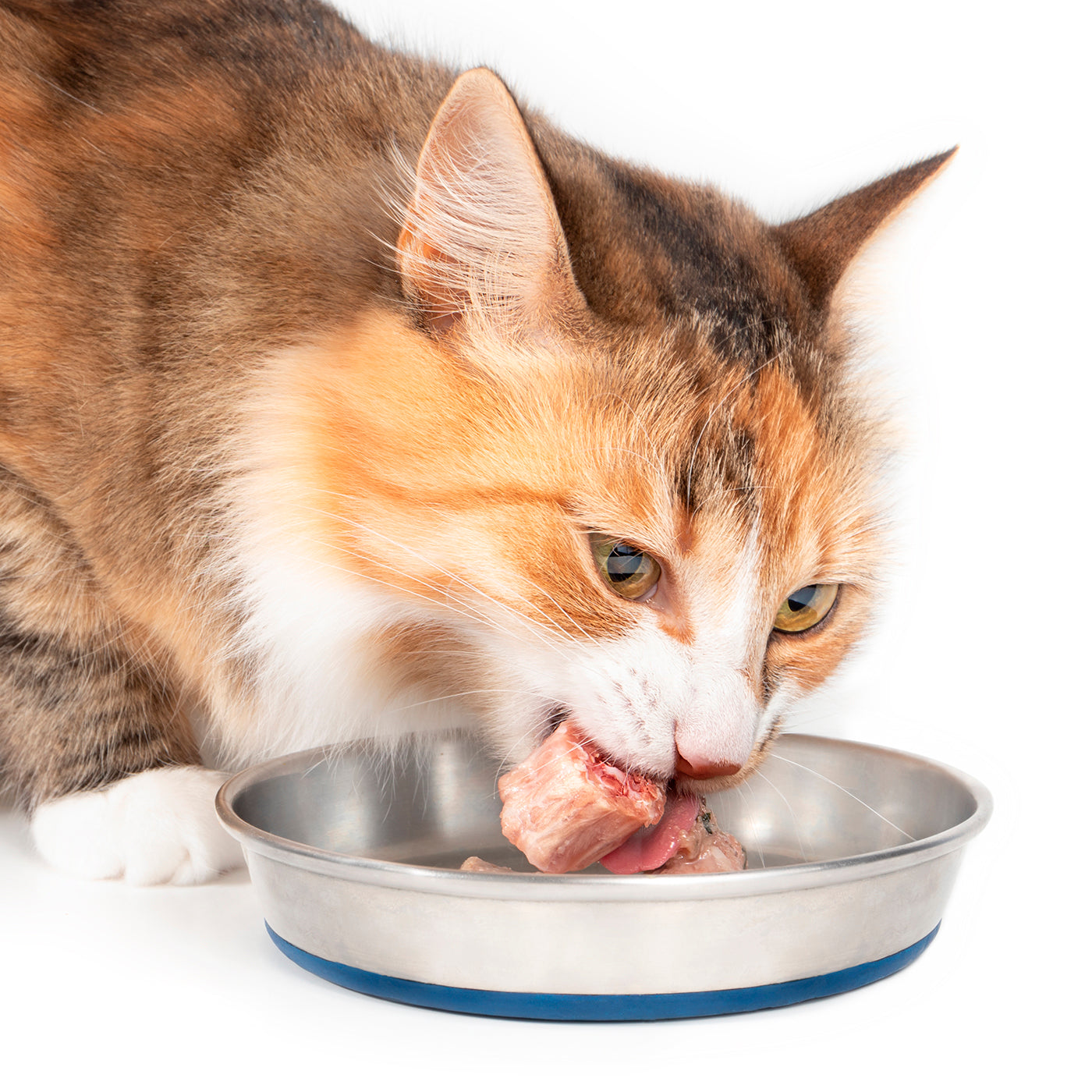
Kittens should be introduced to a diverse diet already in the sensitive period by 12 to 14 weeks of age because mature cats are very particular about the mouthfeel and different-smelling food.
Dry cat foods
-
Oscar Chicken dinner for cats
OscarOriginal price 8,90 € - Original price 40,00 €Original price8,90 € - 40,00 €8,90 € - 40,00 €Current price 8,90 €NEW PACKAGE! Grain free meal for adult cats made of Finnish meat. Meat content 90 %. Protein content 52 %. Added taurin (necessary amino acid for c...
View full details -
Oscar Chicken-pork dinner for cats
OscarOriginal price 8,90 € - Original price 40,00 €Original price 8,90 € - Original price 40,00 €Original price 8,90 €2,70 € - 12,00 €2,70 € - 12,00 €Current price 2,70 €NEW PACKAGE! Grain free meal for adult cats made of Finnish meat. Meat content 90 %. Protein content 51 %. Added taurin (necessary amino acid for c...
View full details -
Oscar Chicken-salmon dinner for cats
OscarOriginal price 8,90 € - Original price 40,00 €Original price8,90 € - 40,00 €8,90 € - 40,00 €Current price 8,90 €NEW PRODUCT! Grain free meal for adult cats made of Finnish meat. Meat content 90 %. Protein content 54 %. Added taurin (necessary amino acid for c...
View full details -
Oscar Chicken dinner for cats, bulk bag 2 kg
OscarOriginal price 25,00 € - Original price 25,00 €Original price25,00 €25,00 € - 25,00 €Current price 25,00 €NEW PACKAGE! Grain free meal for adult cats made of Finnish meat. Meat content 90 %. Protein content 52 %. Added taurin (necessary amino acid for c...
View full details -
Oscar Kana-lohiateria kissoille, irtopussi 2 kg
OscarOriginal price 25,00 € - Original price 25,00 €Original price25,00 €25,00 € - 25,00 €Current price 25,00 €Grain free meal for adult cats made of Finnish meat. Added taurin (necessary amino acid for cats), cranberry (good for urinary health) and vegetabl...
View full details

